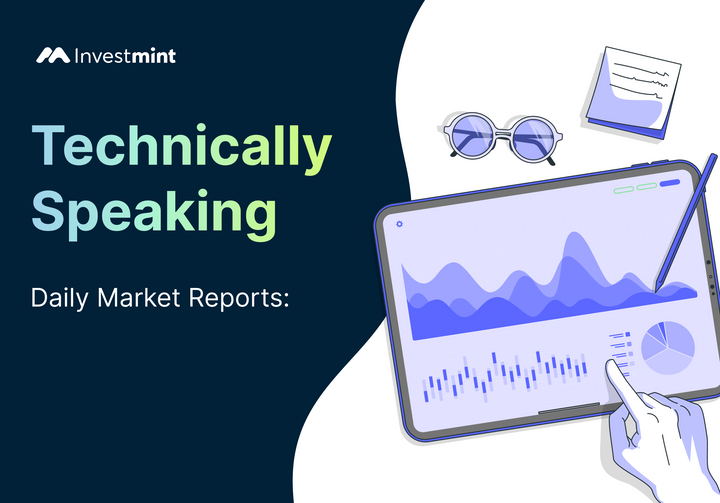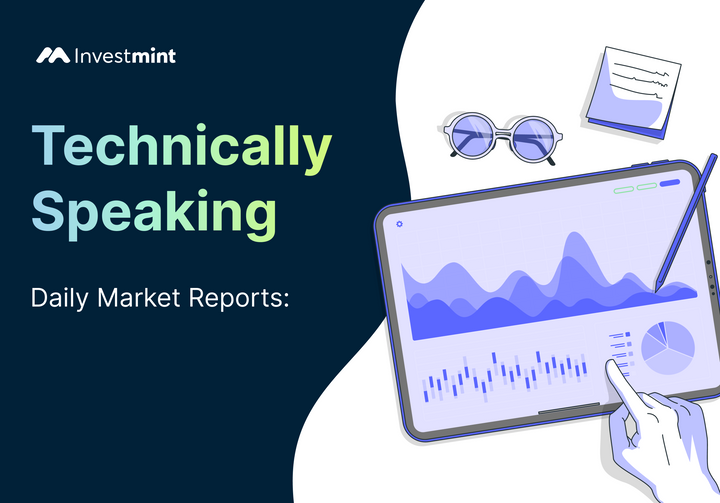Stock Market Recap - October 2023
October's Indian market faced challenges from global factors: FII selling, US rates impact, West Asia tensions. IT, auto stocks declined.

Monthly Market Snapshot
In October, Indian stocks faced significant challenges due to a convergence of global and domestic factors. The ongoing Israel-Palestine conflict, foreign portfolio investor (FPI) outflow, rising US bond yields, and a strengthening US dollar contributed to the market's downturn. Both large-cap and mid-and small-cap stocks experienced a setback, reversing the positive trend witnessed from April to September.
Key Market Movements
- Benchmark Indices: The NSE Nifty 50 and S&P BSE Sensex witnessed losses of nearly 3% each in October, marking the most challenging month in 2023 for Indian blue-chip stocks.
- Global Factors Impacting Markets: The West Asia conflict contributed to a spike in oil prices, negatively affecting net-importing countries like India. Simultaneously, the rhetoric of higher US interest rates by the Federal Reserve led to a surge in US Treasury yields, making them more appealing to investors.
- Foreign Investor Selling: October witnessed significant offloading of Indian shares, with foreign investors selling off ₹22,850 crore worth of stocks, the highest monthly sell-off since January. Persistent FII selling has been a notable factor affecting local markets.
Sectoral Movements And Stock Specifics
- IT Sector Pressure: IT stocks experienced a 3.78% decline in October, signaling a tough month attributed to weakened spending by US and European clients.
- Auto Sector Caution: Auto stocks, including Mahindra and Mahindra, Eicher Motors, and Sun Pharma, faced notable losses due to market caution and block deals.
- Top Gainers: Nestle India, Coal India, and Bajaj Auto led the gainers among the Nifty 50 stocks.
- Top Losers: UPL, Divi's Laboratories, and Tata Steel faced notable losses, among others, ranging from 4% to 12.3%.
Leaders And Laggards

Even through a downturn, mean reversion models at Investmint continued with decent returns. All models except 'Buy High Sell Higher' and 'Back Up' showcased resilience by outperforming the index.
‘Quick Short’ and ‘High Five’ were two of the best-performing models, with 6.52% and 4.21%, respectively. Quick Short is an Intraday model that works on the mean reversion strategy. On the other hand, High Five is a weekly model that picks stocks likely to go up by the end of the week.

Coming to stocks, BSE, or Bombay Stock Exchange Limited, provided a monthly return of 42.14%, followed by ITI, or Indian Telephone Industries Limited, which returned 36.67%. Both stocks are part of the ‘Alpha Ally’ Model.

On the contrary, AAVAS, or Aavas Financiers, and IOB, or Indian Overseas Bank, both part of 'Buy High Sell Higher' model, were among the underperformers with a negative return of 20.01% and 17.20%, respectively.
Expert Insights And Market Outlook
- Shrikant Chouhan, Kotak Securities: Forecasts a mixed trend in the near to medium term due to persistent FII selling and the impact of ongoing global challenges.
- Vinod Nair, Geojit Financial Services: Notes that mid and small-cap stocks gained momentum due to moderation in valuations and domestic investors' strategies.
- Pramod Gubbi, Marcellus Investment Managers: Highlights market anticipation of prolonged high US interest rates, leading to sustained foreign selling in Indian shares and the likelihood of market consolidation.
Global Factor Affecting Indian Markets
- US Fed Policy Meeting Impact: Market caution prevailed ahead of the US Fed policy meeting. While rates were expected to remain unchanged, Chair Jerome Powell's comments on the future rate trajectory were crucial for market direction.
- Banking Sector and Mid/Small-caps: Banking, auto, and IT stocks were under selling pressure due to weak Asian market cues. Meanwhile, mid and small-cap stocks gained traction due to a recent moderation in valuations and a 'buy-on-dip' strategy adopted by domestic investors in anticipation of increased demand during the upcoming festive season.
- Cautious Market Sentiment: Global uncertainties and the impact of US interest rates continue to shape market sentiment, warranting a watchful approach and informed investment decisions.
Disclaimer: The opinions expressed in this blog are personal views and should not be considered financial advice. Please do your own research and consult with a professional before making any investment decisions.



